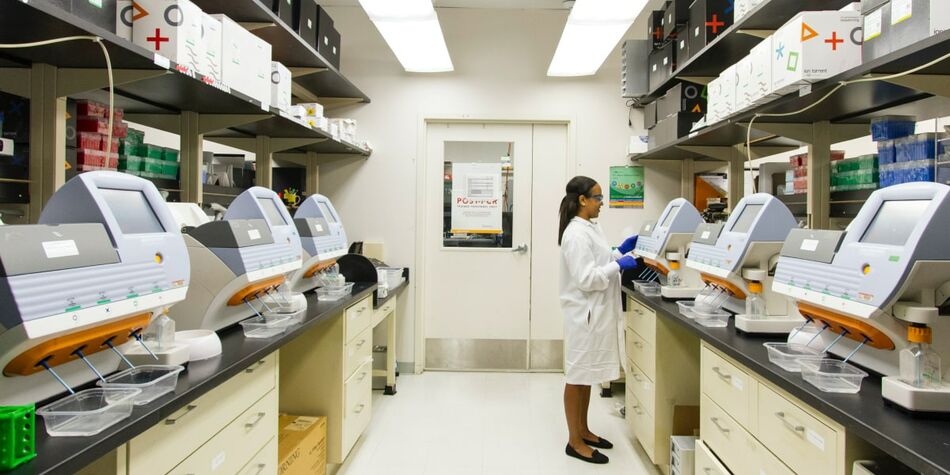Why Your Medical Startup Should Be HIPAA Compliant

According to the rules of the US healthcare industry, every medical software needs to be HIPAA compliant. So, if you are planning to run a project in this domain, you should care about the HIPAA compliance of your startup. In this article, we will reveal all the critical moments that you need to take into account when it comes to compliance.
eHealth technologies are already in the market, but are they as safe as doctors and patients want them to be? Since the health of the population is an important issue, governments are always concerned about it. A lot of countries have regulatory requirements regarding online health care services and medical startup development and the quality and safety of them.
The Health Insurance Portability and Accountability Act (HIPAA) is the legal policy governing this for the US healthcare industry, and healthcare software providers need to be compliant with it. Below we’ll tell you why.
What is HIPAA and Why Should You Care About Its Legal Requirements?
One of HIPAA’s main goals is to protect the sensitive medical information of patients. That is why HIPAA Security Rules established a set of criteria for medical software used in hospitals for storage and management of Protected Health Information (PHI).
There are two main reasons why HIPAA policies and procedure compliance matter.
- In the development of health tech startups, this puts increased responsibility on the developers. Medical equipment like the Internet of Things (IoT) implants may be potentially dangerous if there is a security weakness. As for the software intended for data storage and management of patient information, keep in mind that this information is very sensitive. If patient data is hacked it can lead to reputational damage for the patient and you as a software provider. HIPAA compliance is necessary to prevent this from happening.
- What’s more, the failure to comply with HIPAA can result in significant fines and penalties depending on the requirements violated.
What Are the HIPAA Requirements?
There are three major things addressed in the HIPAA law. A healthcare startup needs to protect patient data from these three sides:
- Administrative
- Physical
- Technical
In order to make sure that medical software is safe for patients and doctors, and you are not going to have problems with the law, you should know the requirements established by HIPAA. Below are the main ones.
SSL Protection
This is a classic way to protect user data. What’s more, the presence of SSL protection helps build trust between your medical service and its users. If the website is not protected by SSP, a patient gets a notification that their connection isn’t secure, and they most likely will not be willing to leave their personal and medical data in an unsafe place.
Full Data Encription
This is one more classic strategy to protect data stored in the cloud. All the information should be carefully encrypted, and each of your employees should have a unique key. Different employees should have different permission levels meaning that each employee should only be able to access data that he or she needs for work.
Full Data Backup
The PHI should be copied and stored in a place that has an even higher safety and security level than your medical software.
Permanent Data Deletion
Patient data should be stored and backed up safely, but it should be safely deleted as well. This is a problem you should avoid. The patient data that is no longer needed or expired, should be deleted from the servers without the possibility of restoration. Otherwise, there could be a loophole for fraudsters who steal outdated medical information for use in drug trafficking or fake identity creation.
Limited Access
Healthcare startups should be developed with a clear business and use strategy in mind. When it comes to sensitive information, it is necessary to identify people who should be able to access a particular piece of data. For example, a nurse may need less information about a patient than the doctor.
Healthcare companies should be HIPAA compliant, but what does it mean to be in compliance with HIPAA? It means that protecting patient data should always be the top priority, and you should strictly follow HIPAA technical safeguards during your medical startup development.
You can also choose a HIPAA compliant hosting provider for your servers. In this case, you need to look at the HIPAA complaint hosting checklist.
Common HIPAA Violations You Should Avoid
Complying with HIPAA is not only about the technical issues involved and proper protection of your software from data hacking. Data leaks often happen because of the innocent behavior of employees. You should be aware of the situations below because they are direct violations of the Health Insurance Portability and Accountability Act.
- Information disclosure. HIPAA states that doctors and nurses shouldn’t discuss the health condition of their patients with friends and family, even if they don’t mention names.
- Accessing patient information on home computers and texting patient data. Home computers are more vulnerable than ones in the hospital. Accessing patient data from your home computer is a direct threat to data safety as it is easier to hack a home computer than to steal the password of a medical software system and extract the information needed. The same goes for texting patient test results or other information via instant messengers that are also poorly protected.
- Lack of training. Very often, medical employees don’t even know that they are violating HIPAA rules since their actions are innocent. That is why it is necessary to point out the importance of patient data safety and teach your doctors how to save it securely.
- Social media postings and social breaches. Sometimes, doctors are posting patient photos on social media without consent to show the results of plastic surgery for example. However, this is a violation since somebody may recognize a patient, especially if the photo is posted by a well-known doctor or the patient comes from a small town. There can also be a situation when a patient asks the doctor about the health condition of a friend who is also a patient.
How Long Does HIPAA Compliance Take?
Health insurance startups, as well as other medical projects that are going to store patient health information, should be developed with HIPAA requirements in mind from the very beginning. The right answer to this question is that HIPAA compliance takes as much time as project development, plus you should always keep its requirements in mind.
Even after the project is launched and successfully used by a hospital, there should be a HIPAA Compliance Officer who can monitor legislative changes and suggest additional measures to make the software usage safe and secure.
How We Can Help to Make Your Software HIPAA Compliant
How do you make your startup HIPAA compliant in real life? We suggest partnering with a HIPAA Compliance Expert and a tech-savvy development vendor all in one company. Cprime meets both of these requirements. What’s more, we already have experience with HIPAA-compliant medical startup development, having created a medical communication and medical imaging platform for well-known healthcare service providers in the US.
Do you have an idea for a medical project that is needed by the healthcare industry? We know how to make it safe from a technical perspective and how to follow all legislation requirements.

